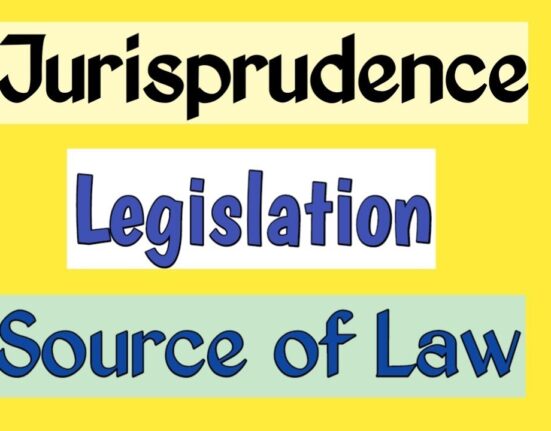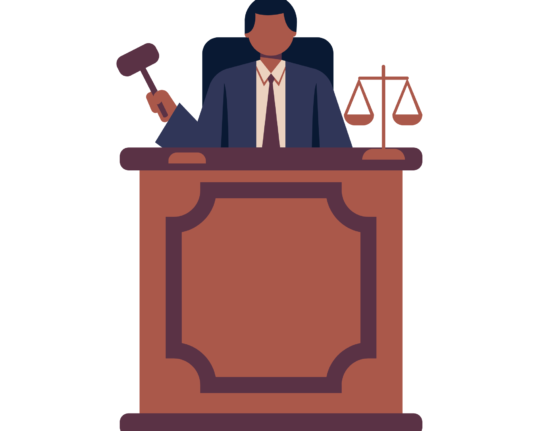Rimi Agarwal, a second-year student at Manipal University Jaipur, wrote the article “The Role of legal education in promoting social justice”
Introduction :
In addition to teaching students about laws, case law, and legal theories, legal education is essential for forming the moral principles and thought processes of future judges, attorneys, and public servants. Fundamentally, legal education can profoundly advance social justice by fostering a strong commitment to justice, equity, and the defence of human rights. It is more important than ever to have a legal system that protects justice for all people, especially underprivileged and marginalized populations, in a time of stark social and economic inequality.
Creating a society where everyone has equal access to resources and opportunities and where everyone’s rights are upheld and safeguarded regardless of background is the goal of social justice. With a thorough understanding of social justice, lawyers are in a unique position to confront systemic injustices and push for changes that will guarantee a more equitable society. Legal education must, therefore, contain critical viewpoints that emphasize the confluence of law and social justice in addition to standard teaching approaches.
Legal education may equip students to not only grasp the complexities of the law but also to use it as a vehicle for positive social change by incorporating social justice ideals into the curriculum, cultivating critical thinking, and encouraging active participation with real-world situations. Developing legal professionals who are not just knowledgeable about the law but also fervently dedicated to advancing justice and equity in their career pursuits requires a complete approach.
The many ways that legal education can advance social justice will be discussed in this article, including curricular integration, the development of advocacy and critical thinking abilities, increasing access to justice, tackling structural injustices, and taking a global viewpoint. By looking at these elements, we hope to draw attention to how important legal education is in creating a society that is just and equal.
Curriculum Integration :
To educate students to be advocates for a more just society, social justice must be incorporated into the legal curriculum. To achieve this, social justice concepts must be integrated into all facets of legal education as opposed to being optional or incidental subjects. Key elements of this integration are as follows:
Essential Courses and Programs
Core Courses: Courses on criminal justice, civil rights law, and constitutional law can all include social justice topics. The equal protection clause in constitutional law, for instance, can be discussed in detail together with important cases like Obergefell v. Hodges and Brown v. Board of Education that have influenced human rights jurisprudence. The impact these choices have had on marginalized populations and the ongoing difficulties in achieving true equality should be thoroughly examined in these conversations.
Elective Courses: Students can gain a deeper understanding of certain social justice concerns by enrolling in specialized electives that cover topics like environmental justice, immigration law, gender and sexuality law, and human rights law. For example, international human rights treaties, the function of non-governmental organizations (NGOs), case studies on human rights breaches, and advocacy tactics can all be included in human rights law courses.
Legal Practice Clinic Education
Under the guidance of seasoned attorneys, students in clinical legal education can represent actual clients, giving them practical experience. Students who participate in clinics centered on social justice topics can:
Directly Assist oppressed Populations: Students can gain much-needed legal counsel by working with low-income clients, immigrants, victims of domestic abuse, and other oppressed populations.
Develop Practical Skills: Clinics impart a strong sense of empathy and a dedication to public service in addition to teaching practical skills including client interviewing, negotiating, and courtroom argument.
Multidisciplinary Methods
Interdisciplinary approaches aim to provide a thorough understanding of social justice concerns by incorporating knowledge from other disciplines, including economics, political science, and sociology. This aids students in understanding the complex interplay between justice and inequality as well as the larger context in which legal issues are raised. For example, the socioeconomic effects of environmental policies and the part played by community involvement in influencing these policies can be covered in an environmental justice course.
Developing Critical Thinking and Advocacy Skills :
The cultivation of legal students’ critical thinking and advocacy abilities is a vital component of legal education in the advancement of social justice. Future legal professionals will be able to advocate for underrepresented communities, create systemic change, and assess and handle complex social challenges with effectiveness thanks to these talents.
Critical Thinking Capabilities
In legal education, critical thinking entails the capacity to critically assess and examine legal theories, concepts, and frameworks. This ability enables students to challenge preexisting legal frameworks and provide novel alternatives, which is crucial for comprehending and addressing social justice challenges.
Case Analysis: Students learn to analyze and evaluate court rulings, comprehending not just the legal justification but also the wider societal ramifications. This entails assessing how choices affect various social groups and determining whether they exacerbate or mitigate systemic injustices.
The Socratic method of education fosters critical thinking and a thorough comprehension of legal concepts and their practical applications by encouraging students to participate in intense discussion and inquiry.
Introspective Exercise: Students are better able to comprehend how their own prejudices and presumptions affect how they interpret the law and how it affects other communities when they are encouraged to reflect on these issues.
Advocacy Techniques
In order to advance social justice, Legal professionals need to possess advocacy skills. These abilities allow attorneys to successfully represent and uphold the rights of underrepresented people and groups.
Legal Research and Writing: The ability to conduct thorough legal research and write well is essential for developing strong arguments and producing impactful legal documents. This includes knowing how to bolster social justice arguments with statutes, court decisions, and academic publications.
Oral Advocacy: Having strong oral advocacy abilities is essential for making presentations in court, reaching agreements, and giving speeches in public. Simulation exercises and moot court tournaments give students real-world experience in these domains.
Training in negotiation and mediation gives students the tools they need to settle disputes and promote just results outside of the legal system. This is especially crucial for social justice work, as group solutions can have a greater long-term and positive impact.
Promoting Access to Justice :
One of the most important aspects of law education’s contribution to social justice advancement is the promotion of access to justice. Maintaining a just and equitable society depends on making sure that everyone, regardless of socioeconomic background, has access to the legal system and legal services. Through a variety of initiatives, such as pro bono services, legal clinics, community education, and policy advocacy, legal education can enhance access to justice.
Charitable Services
Pro bono services refer to giving individuals who cannot afford legal representation at no cost to them. In order to encourage staff and students to perform pro bono work, law schools can be a major factor.
Promoting Student Participation: By including pro bono opportunities into the curriculum, law schools can motivate students to take part in these kinds of projects. One way to foster a culture of public service from the outset of legal careers is to offer academic credit to students who complete a predetermined number of pro bono hours.
Institutional Support: By creating pro bono programs inside law schools and assigning specialized personnel to oversee and assist these initiatives, it is possible to guarantee that students will have the tools and direction they need to successfully serve their communities.
Law Firms
Legal clinics give students practical legal practice while giving marginalized communities much-needed services. Students are able to apply their legal knowledge in practical settings through these clinics, which are run under the guidance of knowledgeable staff members and attorneys.
Clinic Types: Clinics can concentrate on a range of legal topics that have a direct bearing on social justice, including criminal defense, immigration law, family law, and housing rights. An immigration law clinic could help asylum seekers with their petitions and provide legal representation during court proceedings, for instance.
Skills Development: Students gain practical experience in courtroom argument, case management, and client interviews. These encounters also strengthen one’s resolve to assist marginalized groups and comprehend the obstacles they encounter when trying to obtain justice.
Legal Education in the Community
Increasing public understanding of one’s legal rights and available resources is a key component of community legal education. Law schools might take part in community outreach programs to teach people about the legal system and their rights.
Workshops and Seminars: Holding workshops and seminars on subjects like consumer protection, employment legislation, and tenant rights can provide people with the information they need to defend their rights. To increase outreach, these activities can be organized in conjunction with nearby community organizations.
Educational Materials: Creating and disseminating easily understood legal manuals and brochures might help persons who might not have the resources to obtain legal counsel. These materials can be created by law students or as part of their training.
Global Perspective :
Adopting a global perspective in legal education is crucial for promoting social justice. This approach involves understanding and addressing social justice issues not only within a national context but also from an international and comparative perspective. By integrating global perspectives into the curriculum, legal education can prepare students to engage with worldwide human rights challenges.
International Human Rights Law
International human rights law forms the backbone of global social justice efforts. Legal education can incorporate comprehensive studies of international human rights treaties, conventions, and case law to provide students with a deep understanding of global standards and practices. Human Rights Courses: Offering courses specifically focused on international human rights law, such as the Universal Declaration of Human Rights, the International Covenant on Civil and Political Rights, and the International Covenant on Economic, Social and Cultural Rights, helps students grasp the foundational legal frameworks governing global human rights. Case Studies: Analyzing landmark cases from international bodies such as the International Court of Justice (ICJ) and the European Court of Human Rights (ECHR) allows students to see how international human rights norms are applied and enforced.
Comparative Legal Studies
Comparative legal studies involve examining how different legal systems address similar social justice issues. This comparative approach helps students understand the diversity of legal traditions and the various ways in which laws can be structured to promote justice. Comparative Law Courses: Courses in comparative law can cover topics such as comparative constitutional law, criminal justice systems, and civil rights protections in different countries. This encourages students to evaluate and compare legal solutions from around the world. Exchange Programs: Student and faculty exchange programs with international law schools provide firsthand exposure to different legal systems and practices, fostering a deeper appreciation of global legal diversity.
Conclusion :
Legal education plays an indispensable role in promoting social justice by preparing future legal professionals to understand, address, and reform systemic inequities. Through a comprehensive approach that integrates social justice principles into the curriculum, fosters critical thinking and advocacy skills, promotes access to justice, and emphasizes interdisciplinary learning and ethical responsibility, legal education can significantly contribute to creating a more equitable society. In conclusion, legal education plays a vital and diverse role in advancing social justice. Legal education may effectively train future legal professionals to be successful advocates for a more fair and just society by integrating social justice into the curriculum, encouraging critical thinking and advocacy skills, increasing access to justice, and utilizing technology breakthroughs. Through these initiatives, the legal community is guaranteed to play a part in the continuous fight for social justice and the defense of everyone’s human rights.
Reference
https://core.ac.uk/download/pdf/72837552.pdf
https://journals.sagepub.com/doi/10.1177/23220058241253403







Leave feedback about this